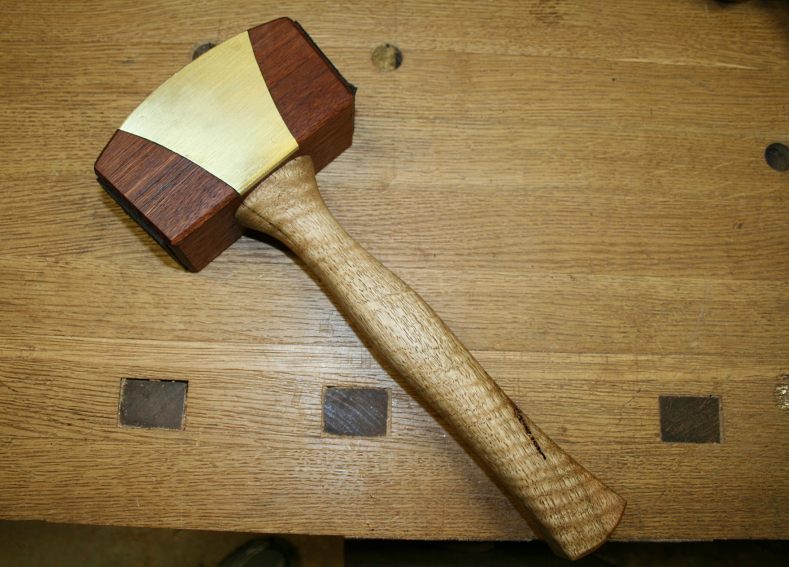nicguthrie
Established Member
I remember watching David C's video on chisel technique for precision and him mentioning something about preferring the metal hammer because the striking tone changed in different circumstances, giving a little bit of audible feedback about the depth of the cut and something else about it (it's been two years since I saw it, and I only just found out that it was David that featured in the video - it's been removed from YouTube where I saw it)
Could anyone clarify a little? I've thought for a long time about getting one of the Japanese Genno hammers from Rutlands or Dictum, but I'm not sure about justifying the cost over the rather effective and pleasant to use plastic faced Thor brand hammer that I use at the moment.
Absolutely excellent video, and a sore loss from my woodworking playlist on YouTube. David, if you see this, thanks for the excellent instruction, and is there anywhere else I can legally still see it, or has it shifted to a pay-for-the-DVD only model now? For myself as a disabled and retired type with woodwork only as a hobby for when I'm well enough, I try to guard my penny stash as best I can, but if it's part of a set, I'd definitely consider saving up.
Thanks in advance
Nic.
Could anyone clarify a little? I've thought for a long time about getting one of the Japanese Genno hammers from Rutlands or Dictum, but I'm not sure about justifying the cost over the rather effective and pleasant to use plastic faced Thor brand hammer that I use at the moment.
Absolutely excellent video, and a sore loss from my woodworking playlist on YouTube. David, if you see this, thanks for the excellent instruction, and is there anywhere else I can legally still see it, or has it shifted to a pay-for-the-DVD only model now? For myself as a disabled and retired type with woodwork only as a hobby for when I'm well enough, I try to guard my penny stash as best I can, but if it's part of a set, I'd definitely consider saving up.
Thanks in advance
Nic.









